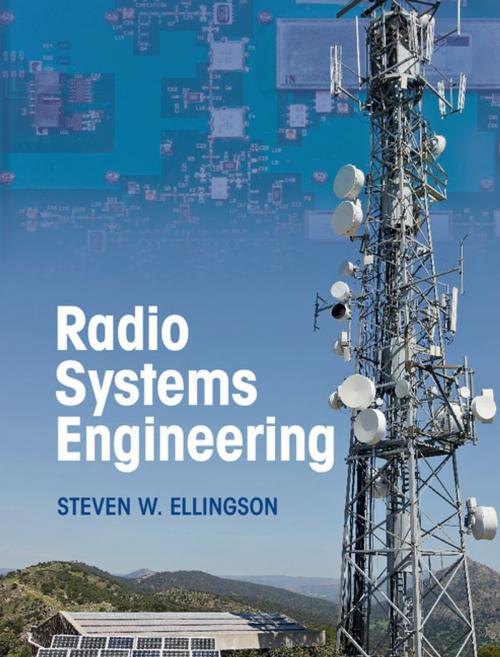| Author: | Steven W. Ellingson | ISBN: | 9781316784204 |
| Publisher: | Cambridge University Press | Publication: | October 6, 2016 |
| Imprint: | Cambridge University Press | Language: | English |
| Author: | Steven W. Ellingson |
| ISBN: | 9781316784204 |
| Publisher: | Cambridge University Press |
| Publication: | October 6, 2016 |
| Imprint: | Cambridge University Press |
| Language: | English |
Using a systems framework, this textbook provides a clear and comprehensive introduction to the performance, analysis and design of radio systems for students and practising engineers. Presented within a consistent framework, the first part of the book describes the fundamentals of the subject: propagation, noise, antennas and modulation. The analysis and design of radios, including RF circuit design and signal processing, is covered in the second half of the book. The former is presented with minimal involvement of Smith charts, enabling students to grasp the fundamentals more readily. Both traditional and software-defined/direct sampling technology are described, with pros and cons of each strategy explained. Numerous examples within the text involve realistic analysis and design activities, and emphasize how practical experiences may differ from theory or taught procedures. End-of-chapter problems are provided, as are a password-protected solutions manual and lecture slides to complete the teaching package for instructors.
Using a systems framework, this textbook provides a clear and comprehensive introduction to the performance, analysis and design of radio systems for students and practising engineers. Presented within a consistent framework, the first part of the book describes the fundamentals of the subject: propagation, noise, antennas and modulation. The analysis and design of radios, including RF circuit design and signal processing, is covered in the second half of the book. The former is presented with minimal involvement of Smith charts, enabling students to grasp the fundamentals more readily. Both traditional and software-defined/direct sampling technology are described, with pros and cons of each strategy explained. Numerous examples within the text involve realistic analysis and design activities, and emphasize how practical experiences may differ from theory or taught procedures. End-of-chapter problems are provided, as are a password-protected solutions manual and lecture slides to complete the teaching package for instructors.















